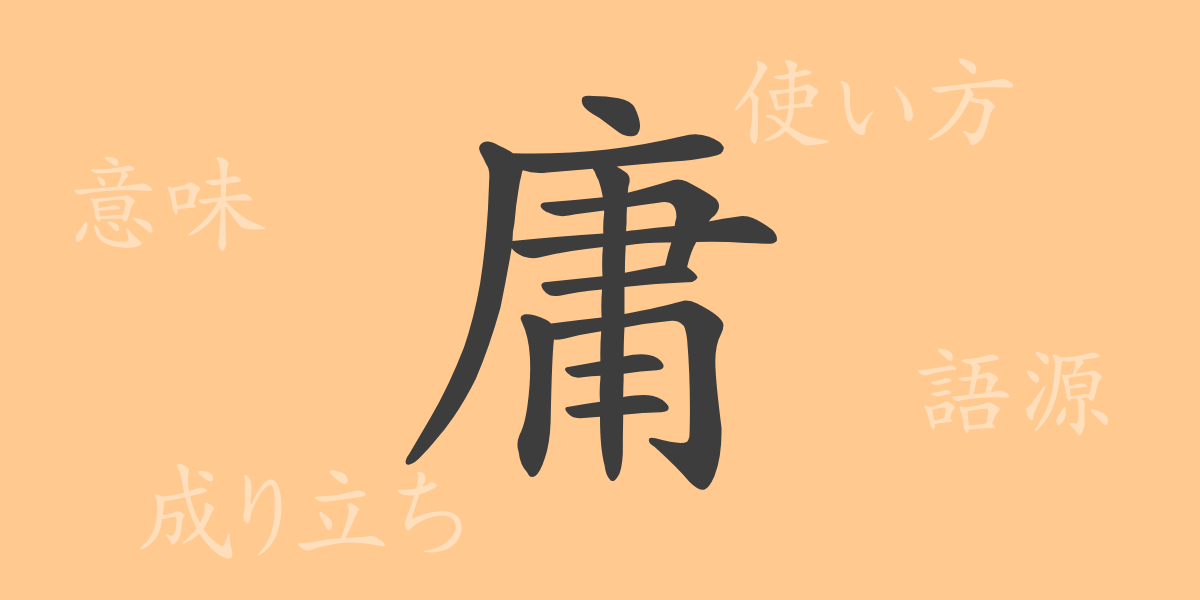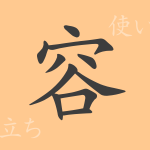Japanese Kanji (漢字, kanji) is deeply rooted in history and culture, with each character carrying significant meaning and shape. Today, we spotlight the less commonly seen Joyo Kanji (常用漢字, jōyō kanji) “庸” (よう, yō) to delve into its charm and knowledge. Understanding the meaning embedded in each Kanji is the first step to mastering a richer use of language. In this article, we will unravel the origins, meanings, usage, readings, and idiomatic expressions involving “庸” (よう, yō).
Origin of 庸 (よう, yō)
The Kanji “庸” (よう, yō) traces its roots back to ancient Chinese oracle bone script. Originally derived from pictographs representing houses, it later came to mean “to use.” This evolution suggests that houses and facilities were “used,” hence linking to the action of “using.” Over time, it further abstracted to convey the meaning of “ordinary.”
Meaning and Usage of 庸 (よう, yō)
In modern Japanese, “庸” (よう, yō) is often used to mean “ordinary” or “commonplace.” Additionally, it encapsulates the meaning “to use,” merging these two senses to imply “nothing special, ordinary.” Depending on the context, it can also mean “useful” or “convenient,” a usage closer to its classical sense.
Reading, Stroke Count, and Radical of 庸 (よう, yō)
Understanding the readings and composition of the Kanji “庸” (よう, yō) is essential for a deeper comprehension of the character.
- Reading: On’yomi (音読み, onyomi) is “ヨウ” (よう, yō); there is no Kun’yomi (訓読み, kunyomi).
- Stroke Count: 11 strokes in total.
- Radical: 广 (まだれ, madare).
Idioms and Proverbs Using 庸 (よう, yō) and Their Meanings
The Kanji “庸” (よう, yō) appears in many idioms and proverbs. Here are a few examples and their meanings:
- 庸人 (ようじん, yōjin): An ordinary person, common people.
- 非凡庸人 (ひぼんようじん, hibonyōjin): An ordinary person without special talents.
- 庸才 (ようさい, yōsai): Mediocre talent, a person with ordinary abilities.
- 庸庸 (ようよう, yōyō): An unremarkable, mundane state.
These idioms and proverbs are often used to describe people’s talents or characteristics, reflecting Japanese culture and values.
Conclusion on 庸 (よう, yō)
The Kanji “庸” (よう, yō) carries a wealth of meaning that belies its simple form. While it signifies ordinariness or commonness, it also relates to the action of “using,” and is employed in various contexts in the Japanese language. Through idioms and proverbs, one can glimpse into Japanese values and worldview, making the Kanji “庸” (よう, yō) fascinating. By continuing to learn the profound meanings embedded in each character, we can appreciate the depth of the Japanese language.

























